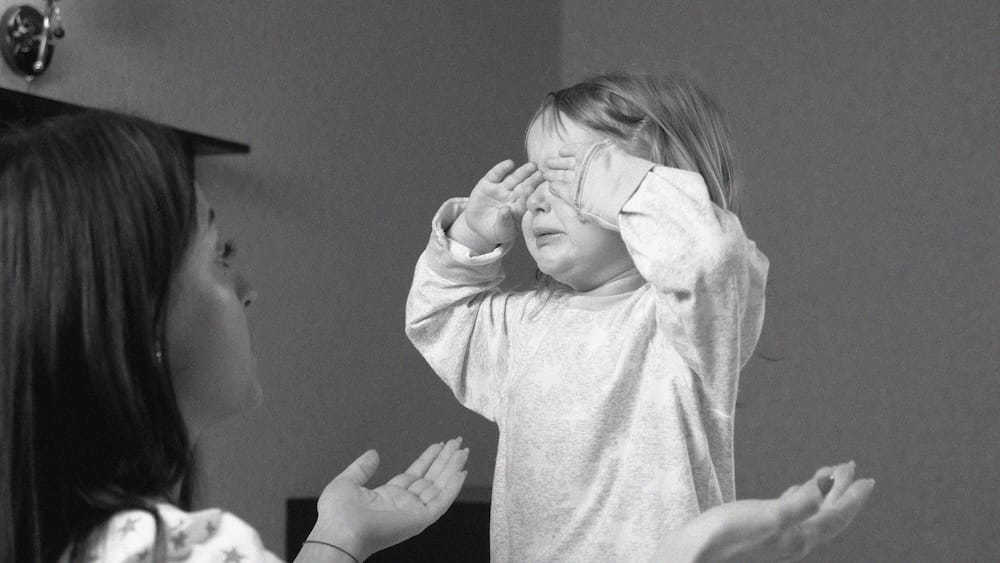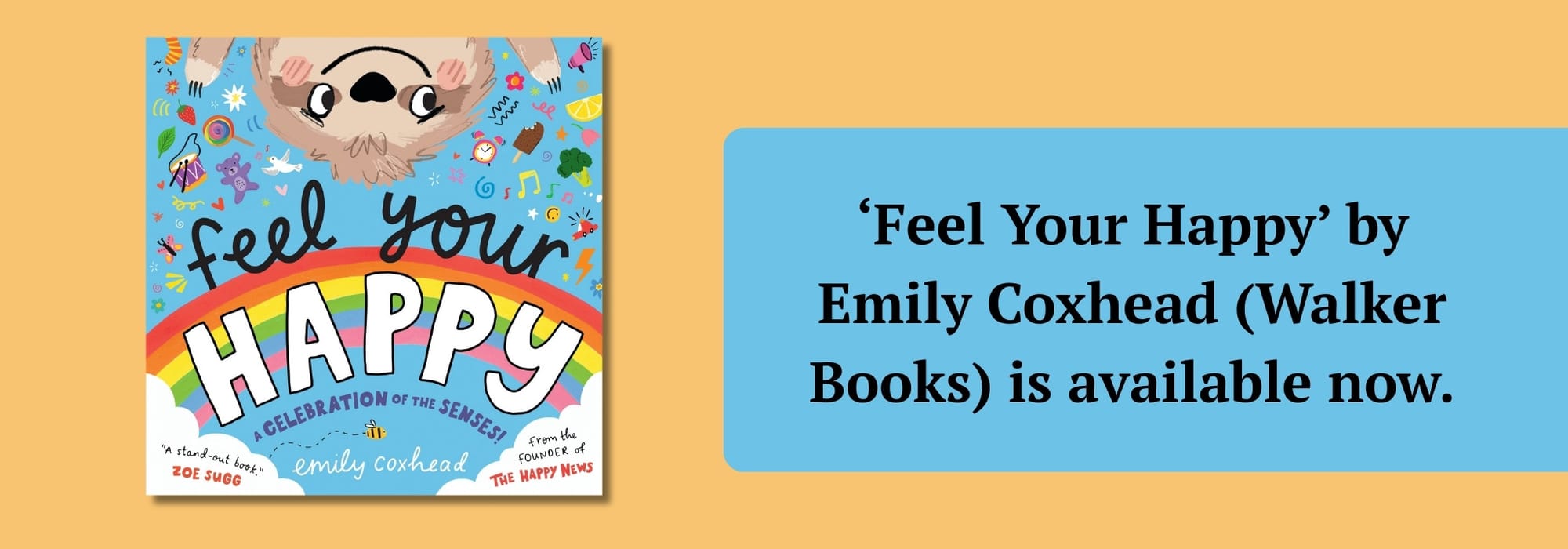Emily Coxhead on her journey from sensory overload to soothing storytelling, and how her books are helping children understand their emotions, one sense at a time
You’re in a new environment, and there are strong smells you don’t recognise. The music and chatter are too loud for you to focus on what any one person is saying. It’s too bright, you start overheating, and it all just becomes too much. This has been the story of my life for as long as I can remember, and I honestly thought everybody felt everything as intensely as I do.
I’m Emily, a 32-year-old illustrator, author, and founder of The Happy Newspaper – something I started almost 10 years ago in a spare room at my dad’s house. I was often called “very sensitive” or “too sensitive” (I still am sometimes!), and the world has always felt a little too loud and overwhelming.
It wasn’t until I came across the words ‘overstimulated’ and ‘sensory overload’ that I truly found language to describe how I’ve felt since childhood.
Sensory overload is when your brain receives more sensory input than it can process at once. It happens when one or more of your senses – sight, sound, smell, touch, taste – is overstimulated. Nobody has ever told me I have this; I’ve figured it out over the years, mostly by wondering if everyone’s clothes felt too tight, or their ears physically hurt from noise, whether they’d happily wear dark sunglasses 24/7, and feel like they need a little nap in a dark room after a social event – the list could go on.
Sensory overload can affect anyone, but certain people are more likely to experience it intensely or frequently. For example, it can be a huge part of autism and attention deficit hyperactivity disorder (ADHD), as well as sensory processing disorder, anxiety, or chronic illnesses, and it is often experienced by children (especially those up to age seven), who are still developing the ability to regulate sensory input. In children, especially, this can show up through crying, tantrums, difficulty communicating, or withdrawal, where they may try to avoid certain situations.

Although I’ve never had any sort of neurodivergence assessment, it’s something I may explore in the future. Funnily enough, my husband went through an ADHD diagnosis a few years ago, after our little boy was born. It was a huge rollercoaster of emotions while going through the process and receiving the diagnosis, but it made so much sense. And once we’d got our heads around the whole thing, it felt like a real weight had been lifted.
Luckily, I’ve always considered my brain might be wired a little bit differently, and although it doesn’t make life easier – and definitely doesn’t help in explaining to others how I feel – it does give me a huge sense of understanding and strength to continue trying to learn more about what helps (or doesn’t help) my brain. Understanding more about ADHD, sensory processing disorder, and autism, has taught me a lot about how they affect people in so many different areas, not just in the typical ways that I was made aware of when I was much younger.
As well as the sensory element, I’ve always felt things deeply, from my own life experiences to watching tragedies on the news, and feeling like I can physically feel other people’s pain, which is why I started The Happy Newspaper. I was at one of my lowest points: I had recently graduated, with no idea what I was doing with my life, and my mum and dad were going through a messy divorce. News and social media were impacting me more than ever, and I started searching for the positives in a bid to share them with others, too. Ten years later, I’m lucky enough to still be sharing positive news with people all over the world, and now I’m sharing some of that happiness through my books, too!
The premise behind my books is to help children (and adults) understand that we all feel a range of emotions, but it is possible to find happiness again. I also wrote Feel Your Happy with little me in mind – a book that would’ve helped me understand that I wasn’t being ‘too sensitive’ or difficult, I was experiencing the world in a more amplified way.
As I’ve grown up, and now am a mum with my own little human to help navigate through all of this, I’ve realised that, as difficult as it is to experience the world this way at times, it also makes it incredibly magical. Friendships and relationships are more meaningful. Passions and dreams are stronger. My love for art, animals, and sitting on a beach, listening to the waves, is huge. As well as experiencing negative feelings and senses powerfully, it also works the other way round.
Growing up like this, I’ve figured out simple, yet effective, ways I can manage my overwhelm. One thing I’ve found recently that helps is wearing discreet earplugs in busy, loud, or overwhelming environments, such as the airport. I hadn’t realised just how much all the different sensory elements affected me until I put them in; it instantly quietened the overwhelm, and made the whole experience more manageable. Sometimes it’s hard to recognise when I’m on the edge of sensory overload, and it’s only when I change something (even as small as putting on sunglasses or stepping outside into fresh air) that I notice how I was feeling.
Focusing on the five senses, I share tried-and-tested coping mechanisms in my book, to help children centre themselves when things feel too much: from taking deep breaths and choosing comfy clothes, to tasting delicious food. These relatable and simple techniques are things that could help any of us feel a little less overwhelmed. Little Sloth (the character in my books) is a comforting reminder that your feelings and the way you experience the world are part of what makes you, you.
One of the biggest things for me growing up was recognising my differences, even if I didn’t understand them fully. And although I felt a constant battle to try to ‘fix’ these things – and still do at times, wondering: “Why can I not just switch that bit of my brain off?” – I’ve grown to accept and celebrate these parts of me as best as I can. I’m sure I wouldn’t be where I am today without them.
If you’re struggling, and any of this has resonated with you at all, please know you’re not alone. Some simple ways I find help are to speak to somebody you regard as safe, write down how you feel, and to step outside, and take some deep breaths. It’s no wonder everything feels overwhelming when you’re trying to fit into a world that isn’t necessarily set up for you.



Comments